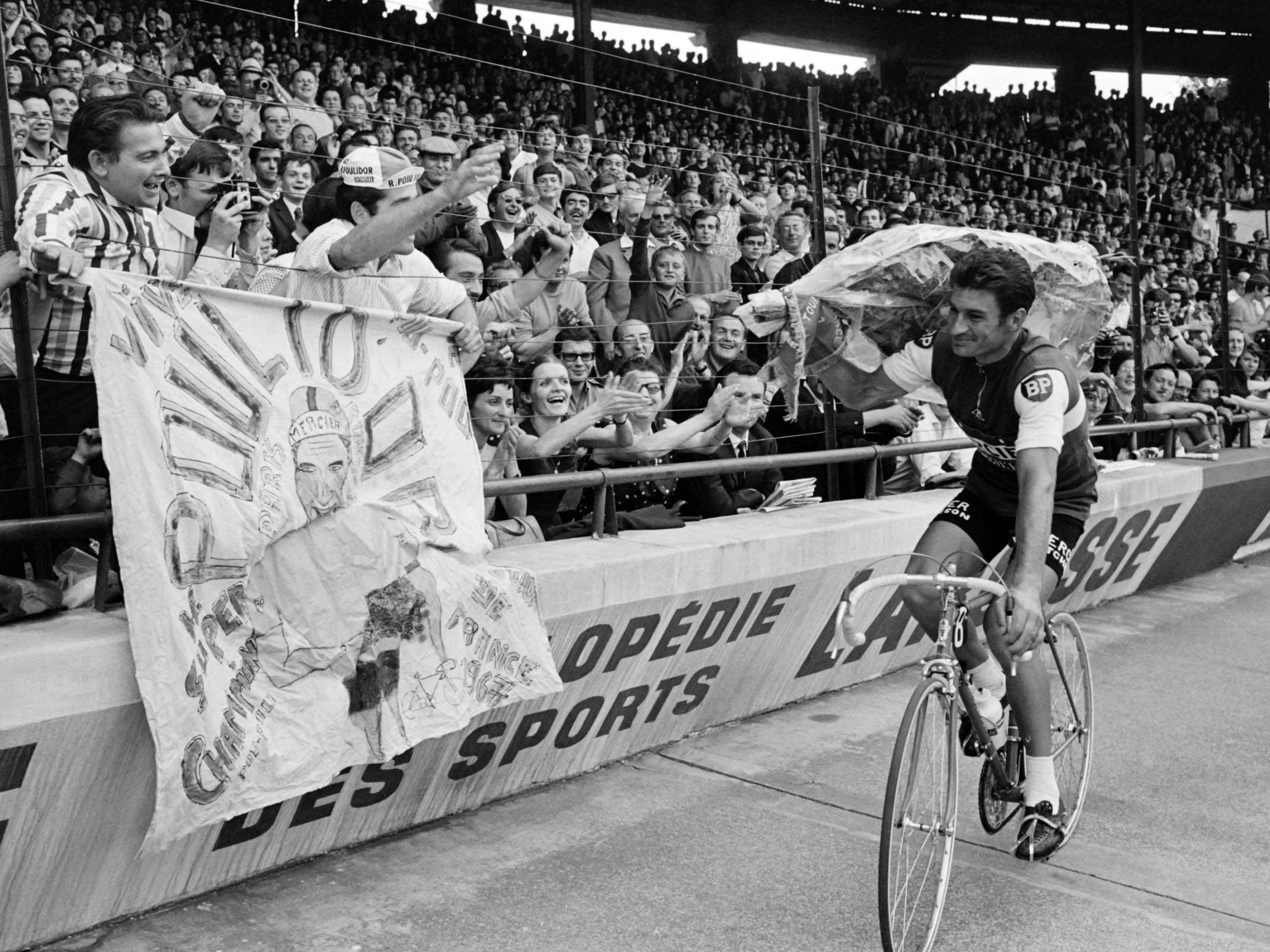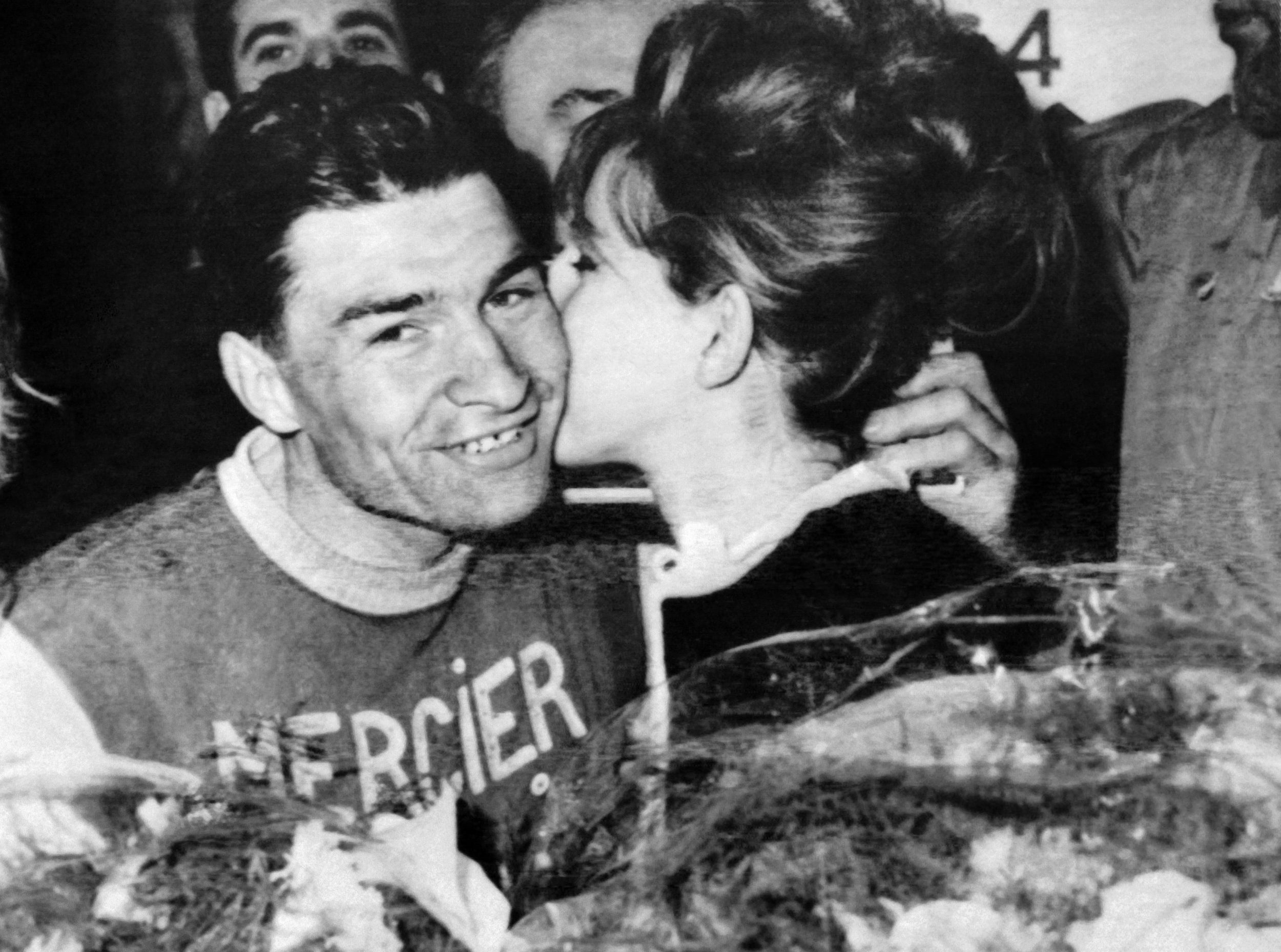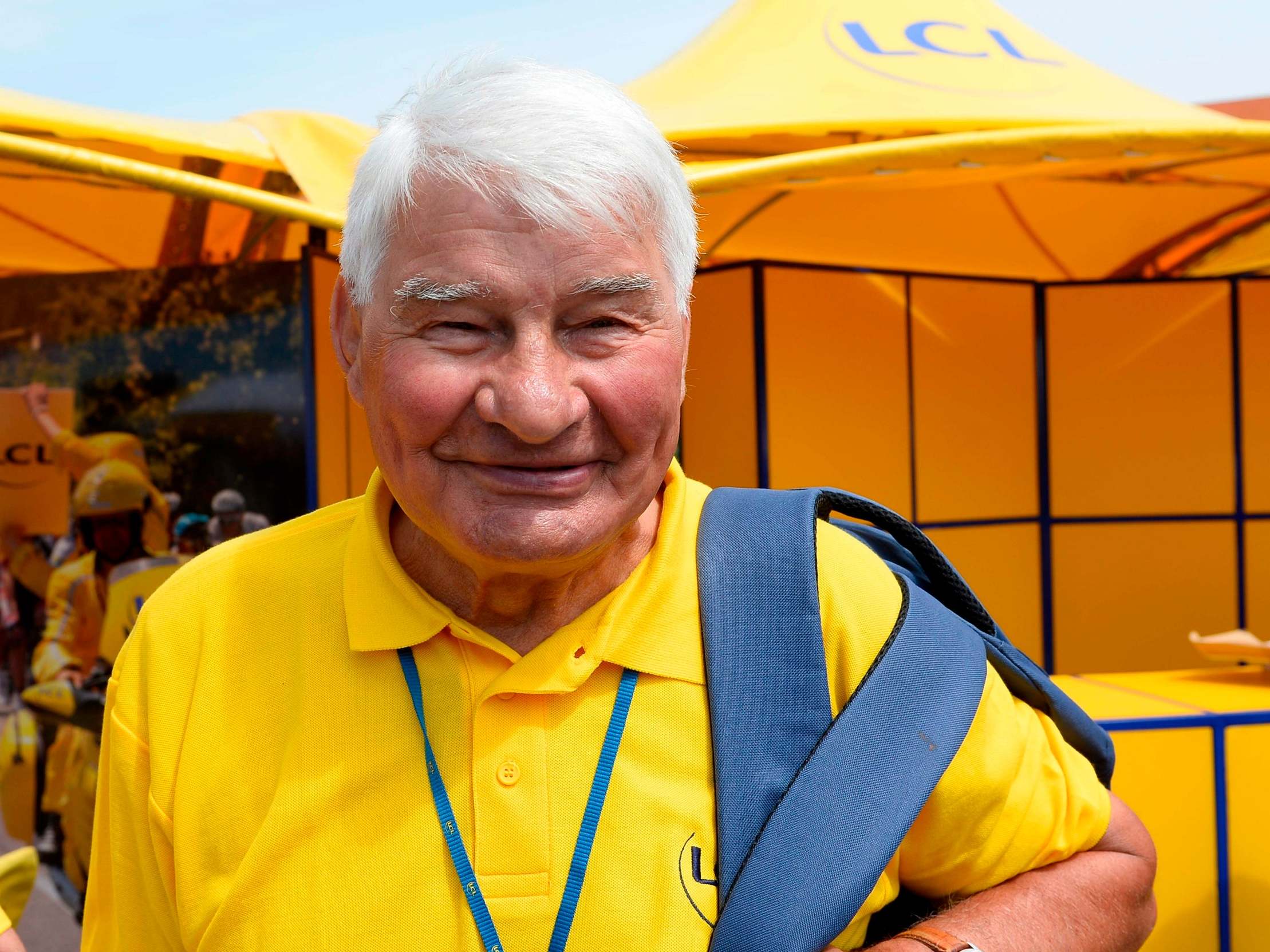Raymond Poulidor: French cyclist whose underdog status endeared him to the public
He won nearly 200 races across his career but never the Tour de France, in which he was runner-up three times

Your support helps us to tell the story
From reproductive rights to climate change to Big Tech, The Independent is on the ground when the story is developing. Whether it's investigating the financials of Elon Musk's pro-Trump PAC or producing our latest documentary, 'The A Word', which shines a light on the American women fighting for reproductive rights, we know how important it is to parse out the facts from the messaging.
At such a critical moment in US history, we need reporters on the ground. Your donation allows us to keep sending journalists to speak to both sides of the story.
The Independent is trusted by Americans across the entire political spectrum. And unlike many other quality news outlets, we choose not to lock Americans out of our reporting and analysis with paywalls. We believe quality journalism should be available to everyone, paid for by those who can afford it.
Your support makes all the difference.Raymond Poulidor, who has died aged 83, was one of the great road cyclists of the 20th century and, while never winning the Tour de France, remained the French public’s most beloved.
Known as “The Eternal Second” – he was runner-up in the Tour three times – Poulidor rose from rural poverty to become a competitor who attacked with great strength and courage. He became a hero to a nation who saw him as a humble underdog outwitted by the more sophisticated likes of Jacques Anquetil and Eddy Merckx, both of whom won more titles than Poulidor across his era.
Raymond Poulidor was born to Martial and Maria Poulidor, crop-sharing farmers, in Masbaraud-Merignat, Creuse, central France. Forced to leave school aged 14 and work on the family farm, he noted: “The soil was poor and we had to work hard; farming incomes were poor.”
Age 14 Poulidor was given his first bike by a local shop owner. He started racing bicycles at 16, picking up the interest from the magazine Miroir-Sprint given to him by one of his schoolteachers. He initially hid his passion from his mother, who was afraid of the dangers the sport entailed.
In 1955 he was conscripted into the French army and, Poulidor would later note, this entailed his first ever train ride. Sent to Algeria where France was in conflict with the independence movement, Poulidor worked as a driver and, due to lack of exercise, put on 12kg in weight. In 1960 he dedicated himself to cycling again and lost the weight in a month.
He won his first race after army service by six minutes. When he then came second in the Grand Prix de Peyrat-le-Chateau and won 80,000 francs, he calculated that he had won more in one race than he would have earned in six years on the farm. Yet even after he turned professional Poulidor continued to help out on his parents’ farm – and the public was won over by his loyalty.
Poulidor was approached by Antonin Magne of the Mercier team, offering a salary of Fr20,000 a month. Poulidor may have had little education but he proved shrewd with money and held out for Fr30,000.

Immediately proving his worth, Poulidor’s courage and determination marked him as one of the great attacking cyclists in mountain stages. Yet the dominance of Jacques Anquetil ensured Poulidor always came second. The two French cyclists were in features, personality and cycling technique the antithesis of one another: while Anquetil and Poulidor battled it out on mountain roads as equals, it was Anquetil’s speed on time trials that saw him consistently beat Poupou (as the French public now referred to Poulidor). That the nation held the second-placer in greater affection was something Anquetil could never fathom.
Between 1962 and 1976 Poulidor made 15 attempts to win the Tour de France, placing second three times and third another five yet never once wearing the Tour leader’s yellow jersey. Poulidor won the 1961 French national championship and the Milan-San Remodid and the Tour of Spain in 1964. He won close to 200 races across his professional career.
His determination as a competitor saw him come back after suffering a serious head injury during the 1973 Tour and, remarkably, placing second in 1976 during the very twilight of his career.

He retired from competitive cycling in 1977 and worked in publicity for Credit Lyonnais, who sponsor the yellow jersey during the Tour. He also maintained a close relationship with Mercier and had several signature bicycles alongside a number of autobiographies.
He was often seen at major cycling events, including this summer’s Tour, where he embraced his grandson Mathieu van der Poel, a professional cyclist who at one stage looked likely to take the yellow jersey that had eluded his grandfather. As ever, the French public loved Poupou for such.
He is survived by his wife Gisele and two daughters.
Raymond Poulidor, cyclist, born 15 April 1936, died 13 November 2019
Join our commenting forum
Join thought-provoking conversations, follow other Independent readers and see their replies
Comments